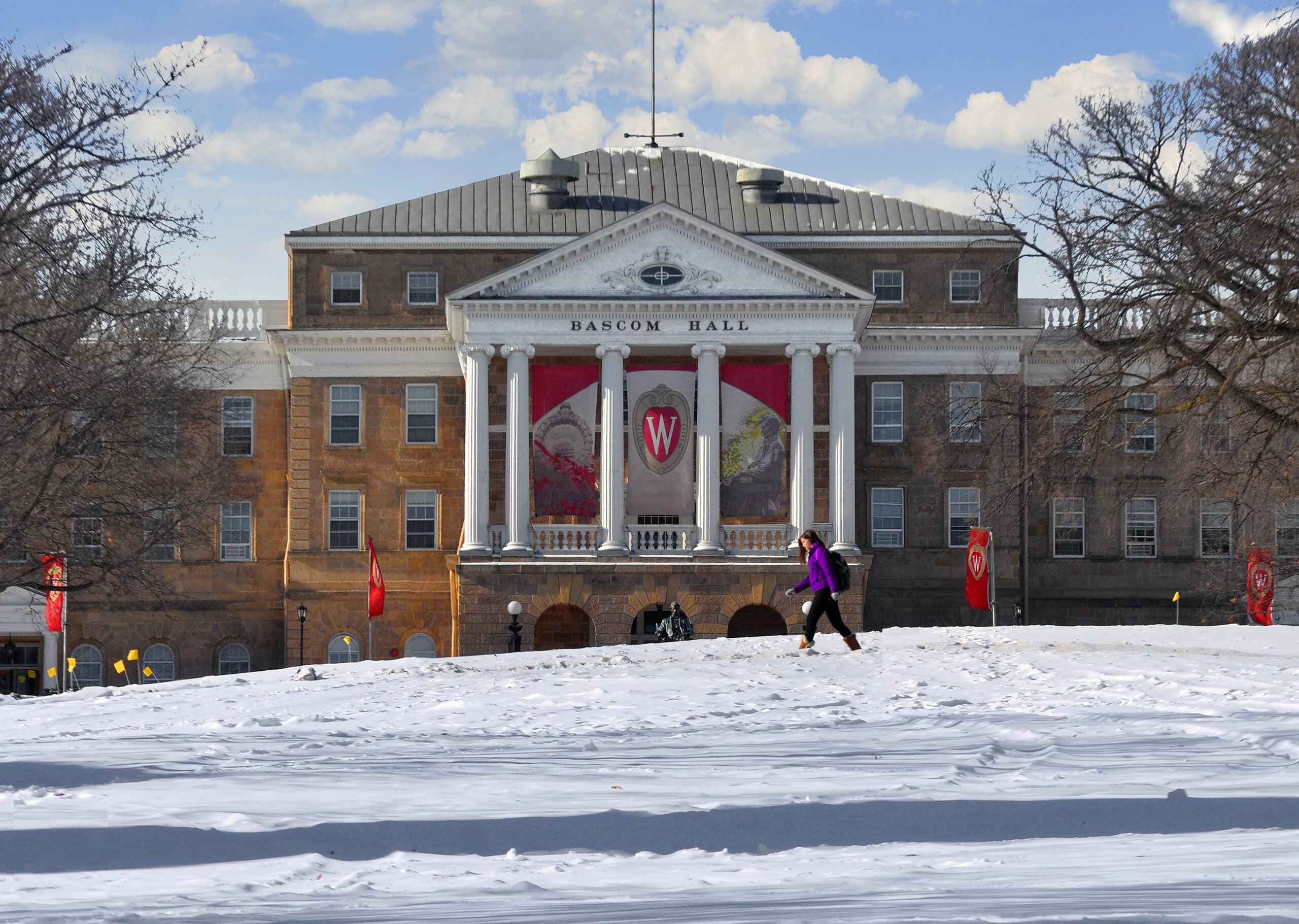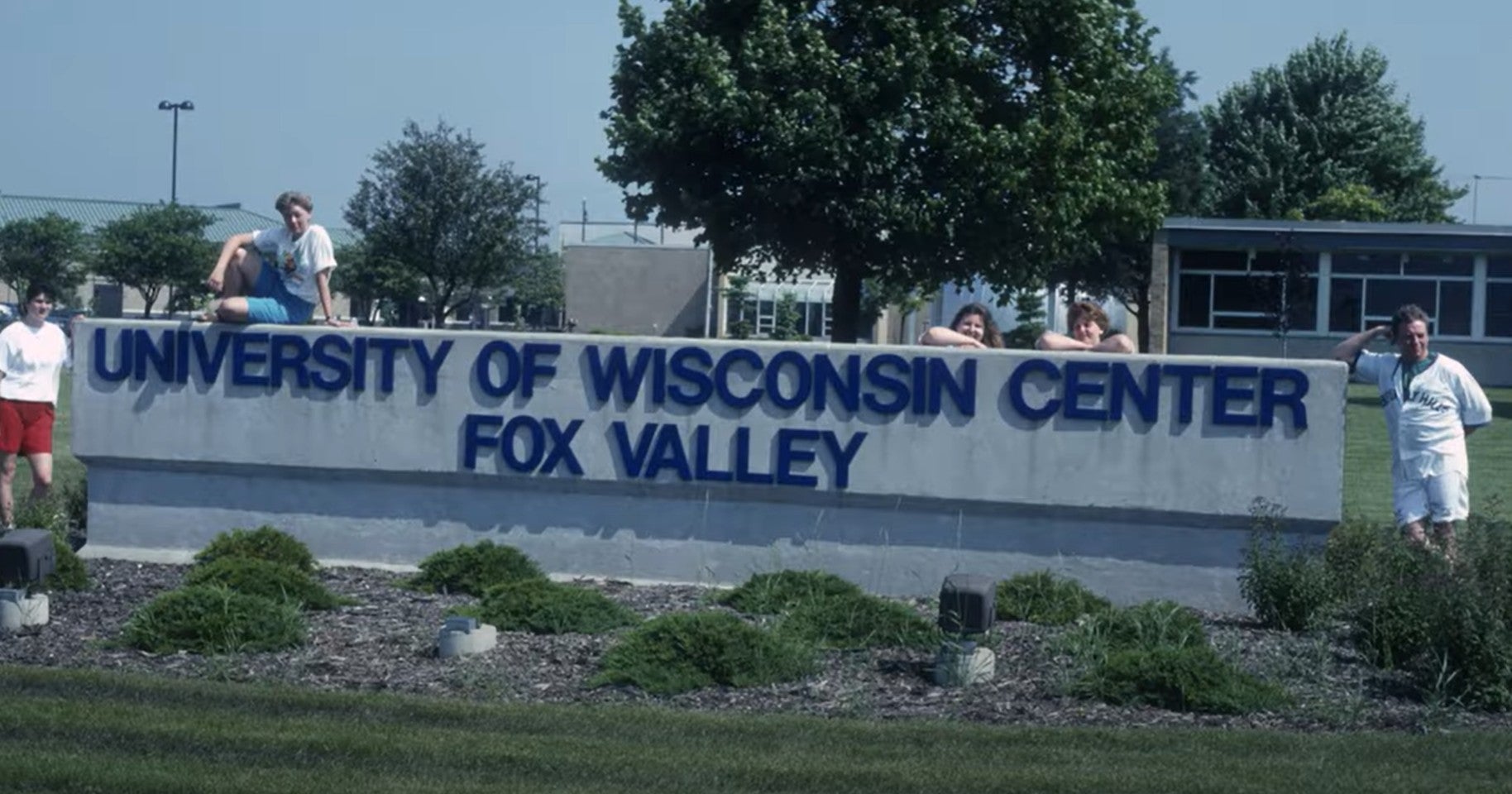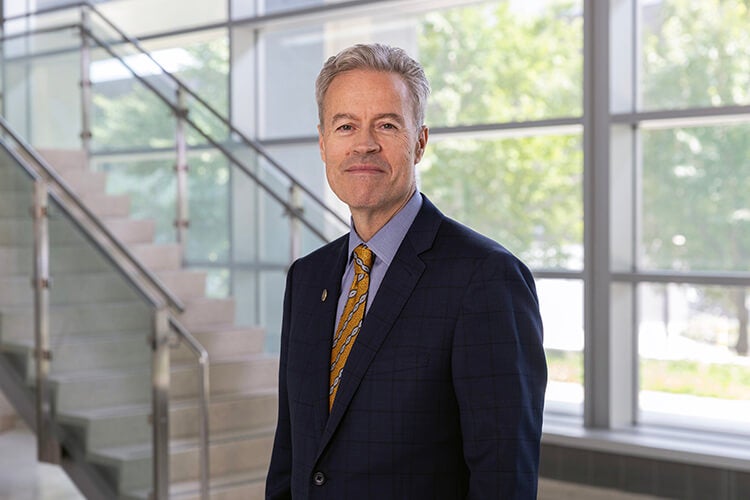A survey of more than 10,000 University of Wisconsin System undergraduate students shows stark differences in opinion on free speech when broken down by political affiliation, gender and race.
Students responded to questions on topics like the First Amendment, whether speech considered harmful should be reported and whether speakers seen as offensive should be disinvited by campuses.
During a press conference prior to the survey’s release, UW System President Jay Rothman said the system “can’t be afraid of the truth and what the survey shows us.”
News with a little more humanity
WPR’s “Wisconsin Today” newsletter keeps you connected to the state you love without feeling overwhelmed. No paywall. No agenda. No corporate filter.
“We want to make sure we get ourselves better,” said Rothman. “It is important that our universities continue to be marketplaces of ideas where divergent opinions can be shared and debated and discussed. And I think that, at the end of the day, is a bipartisan issue.”
A majority of respondents felt that instructors encourage students to explore a wide range of viewpoints in class, but around 30 percent reported feeling very uncomfortable sharing their thoughts, especially on hot-button issues like abortion or transgender issues.
The free speech survey is a joint effort by UW-Stout’s Menard Center for the Study of Institutions and Innovation and the Wisconsin Institute for Public Policy and Service. It was privately funded through the Menard Center, named after Wisconsin billionaire and prominent Republican donor John Menard.
The survey was originally set to go to students attending the UW System’s 13 universities and branch campuses in April 2022 but was delayed for months after former UW-Whitewater interim chancellor Jim Henderson resigned in protest.
Along with asking students about their views on speech on campus, the survey also questioned students about their political views. According to the survey results, around 18 percent of respondents described themselves as very liberal and 22 percent said they were somewhat liberal. Twenty-six percent of students identified as moderate. About 17 percent said they were somewhat conservative, while 9 percent identified as very conservative.
Overall, when students were asked if campus administrators should ban the expression of views they feel could cause harm to others, around 53 percent said that should not happen. Around 21 percent felt administrators should take action in those instances.
But when broken down by political ideology, more than 40 percent of students identifying as very liberal felt strongly administration should ban the expression of potentially harmful views, while almost 80 percent of those identifying as very conservative said administrators should not ban potentially harmful speech.
The split was equally notable when students were asked about whether offensive speakers should be disinvited from campuses or the UW System as a whole. Around 44 percent of all respondents felt offensive speakers should not be disinvited, while around 31 percent felt those speakers should be.
During a panel discussion Wednesday about the survey results, Wisconsin Rep. Dave Murphy, R-Greenville, said he was very concerned by that result.
“It’s scary to me that almost a third very strongly want the administration to disinvite people, and over half believe it’s at least somewhat important for them to do that,” Murphy said.
Among students identifying as very liberal, 58 percent felt strongly that those speakers should be disinvited, while more than 75 percent of students identifying as very conservative felt strongly that offensive speakers should not be disinvited.
Franciska Coleman, a UW-Madison assistant law professor, said that while the university shouldn’t try to control speech, she’s a fan of “social regulation of speech.”
“I think it’s kind of normal that students don’t want to have their student fees help to support speech that they are opposed to.” Coleman said. “I think maybe universities could do a better job of giving them other avenues for expressing their disagreement.”
When respondents were asked whether students should file a report with administration if they felt an instructor said something that could cause harm, more than 42 percent of all respondents strongly agreed. Thirty-two percent felt the opposite.
When broken down by gender, race and sexual orientation, opinions varied widely. More females than males felt instructors should be reported for potentially harmful speech. The same was true for students identifying as non-cisgender, non-heterosexual and non-white.
When asked if students should report fellow students for saying something considered harmful, 42 percent of all respondents felt they should not while around 30 percent said they should.
Respondents were also asked whether they’d ever felt pressured by an instructor to agree with a specific political or ideological view expressed in class. Overall, around 37 percent said they had. Among those considering themselves very conservative, more than 64 percent said they’d felt such pressure. Just 15 percent of those considering themselves very liberal expressed feeling the same.
UW-Madison law professor Ryan Owens said some of the survey results appear to show two different experiences within the state’s colleges.
“We are seeing such tremendously stark differences between people on the right and on the left in this survey that it just cannot escape attention,” Owens said. “I think we have a problem where some people believe that it’s all right to use the university to stop speech with which they disagree. And I think universities have to make a concerted effort to say, ‘No, that is not what we’re going to do here.’”
As the survey discussion drew to a close, Rothman asked each of the speakers for ideas on how to address some of the results reported by students. State Rep. Kelda Roys, D-Madison, said the overall results clearly show the UW System is fulfilling its mission because students’ views are being challenged and most feel comfortable expressing their views.
“And it didn’t surprise me because I had the privilege of going to UW Law School,” Roys said. “And even though I am liberal, I’m a Democrat, I constantly had my views challenged. I learned new things. I took new perspectives. I adopted new ideas. I changed my mind about things.”
Coleman said universities can do a better job of incorporating free speech principles into diversity, equity and inclusion training to teach students the effects of harmful speech while also clarifying that universities cannot ban it.
Owens suggested showcasing a wider range of speakers coming to system campuses and potentially making course syllabi public.
Murphy said he needs to dig deeper into the survey results, but he’s hopeful that the UW System can become a “beacon across the country” for free speech rights.
Wisconsin Public Radio, © Copyright 2025, Board of Regents of the University of Wisconsin System and Wisconsin Educational Communications Board.






